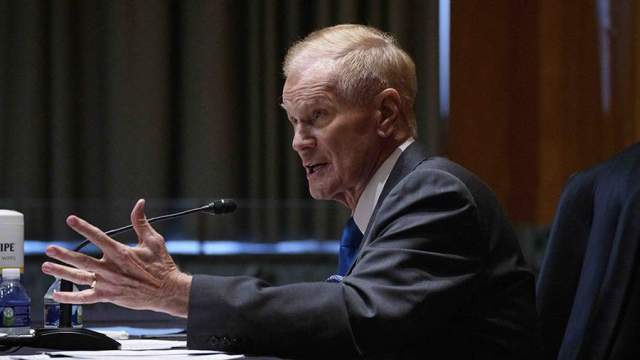The US is leading a space race with China, but maintains a partnership with Russia. This was announced on July 21 by the head of the US National Aeronautics and Space Administration (NASA) Bill Nelson in an interview with The Washington Post.
"I think that we are in a state of a space race with China. They are aggressive, they are good, but I would like them to do what the Soviet Union once did in terms of a civilian space program, I would like them to cooperate [with the United States] and be transparent," he said.
Nelson noted that cooperation in space with the USSR, and then with Russia, began in the United States with the Soyuz-Apollo program in 1975, despite the fact that the countries were then in a state of cold war. Cooperation in space between the United States and Russia, the head of NASA pointed out, is still preserved.
In particular, he recalled the latest launch of the Russian multipurpose laboratory module "Science" to the International Space Station (ISS) and stressed that Russia continues to be a partner of the United States, and the countries jointly support the work of this space station.
In 2020, the US Department of Defense unveiled a new "Defensive Space Strategy" designed to "serve as a roadmap for building up Washington's military and space power". At the same time, the main "serious threats" in it were Russia and China. The document published on the White House website stated that outer space is becoming a potential arena of hostilities between the United States and its opponents, so Washington should be ready to repel aggression in space if necessary.
On June 11, 2021, Professor of NUST MISIS Alexander Gromov, in an interview with Izvestia, said that cooperation between the two countries in space should continue, it is impractical to abandon it. In his opinion, this is "better than the cold war".
On June 14, Russian President Vladimir Putin denied Russia's intention to stop cooperation with the United States in space.
The next day, Bill Nelson said that Washington should closely monitor the joint activities of Moscow and Beijing in outer space. He also called on the United States to implement plans for the moon before Russia and China do so.

